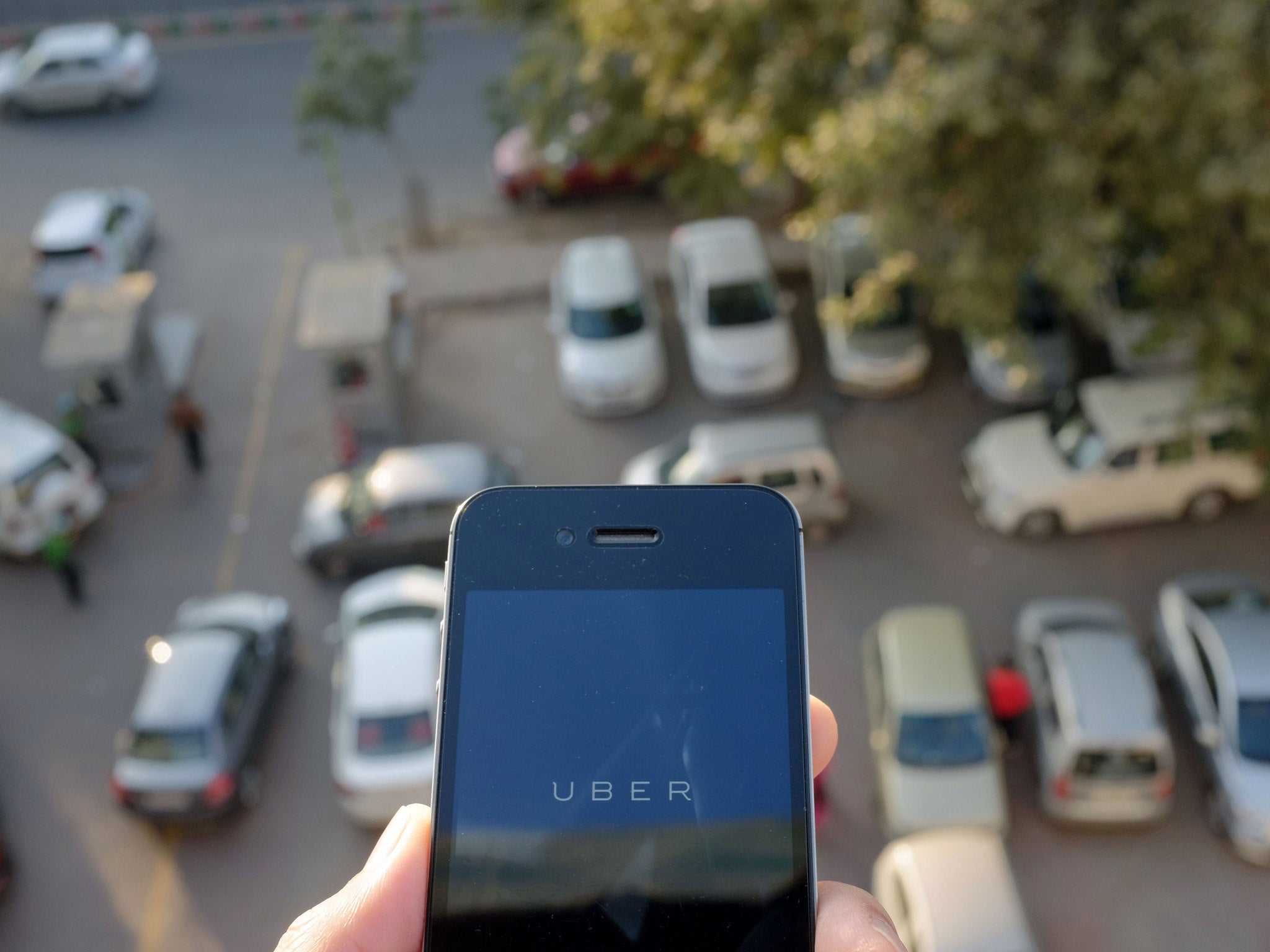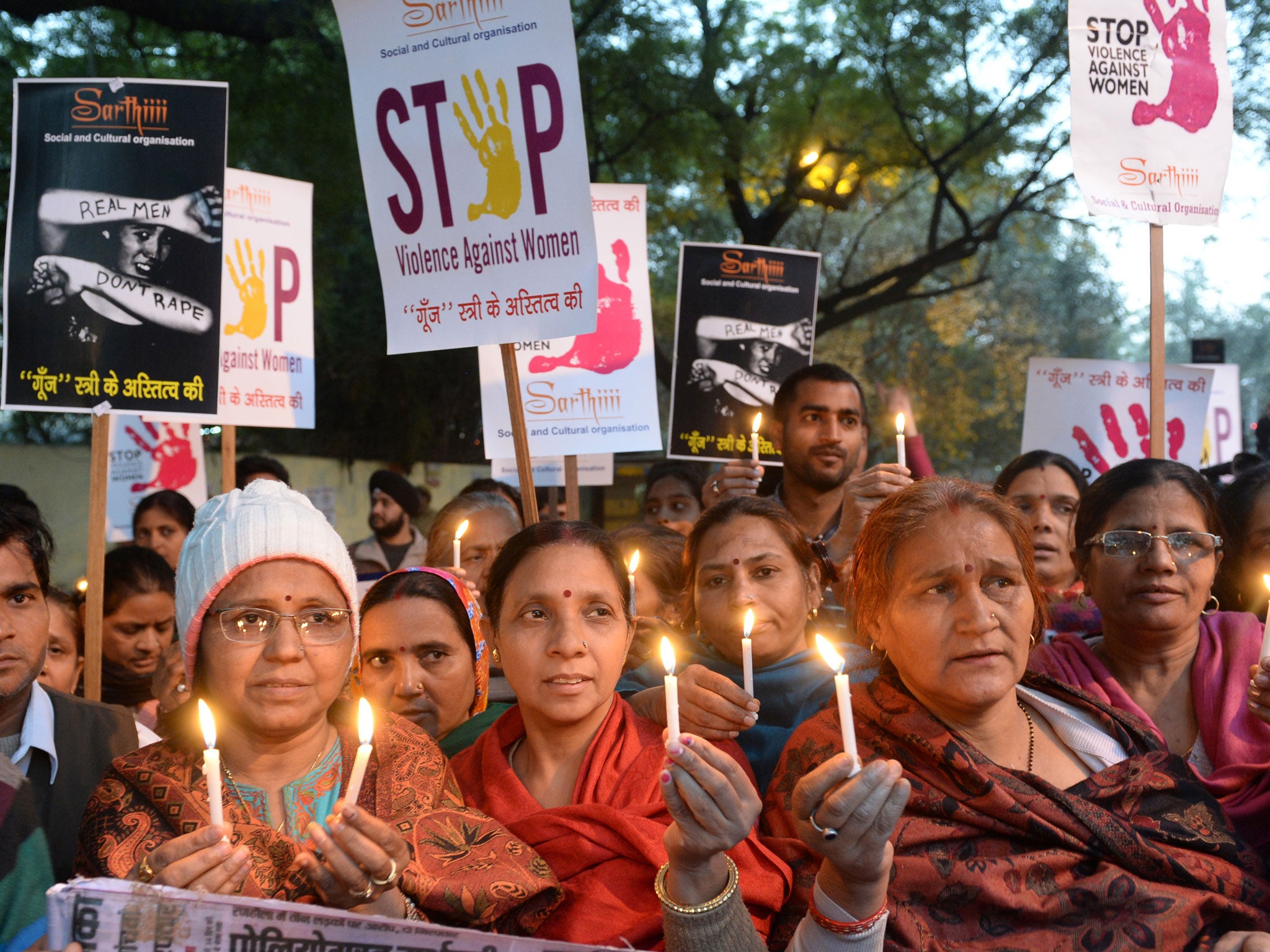Uber taxis banned in Delhi after woman is allegedly raped by driver
The company was criticised for not running background checks on the accused rapist

Taxi booking app Uber has been banned in Delhi after a female executive was allegedly raped by one of its drivers.
The city’s transport department said the “horrific crime” warranted the move as the US-based company was investigated for hiring the accused rapist.
“Keeping in view the violation and the horrific crime committed by the driver, the transport department has banned all activities relating to providing any transport service by the www.Uber.com with immediate effect,” said a statement, reported by the Hindustan Times.
“The transport department has also blacklisted the company from providing any transport service in the National Capital Territory of Delhi in future.”
Police said the 32-year-old driver dropped the woman home after attacking her on Friday night and warned her not to inform the authorities, but she managed to note the driver's number and take a photograph of his car.
Uber is accused of negligence by failing to check whether the driver had a clean police record or had a satellite location device.

The arrested driver, Shiv Kumar Yadav, was charged with raping another woman three years ago but acquitted, police said.
In that case he picked the woman up from his taxi in Gurgaon, a city near Delhi, and allegedly took her to an isolated spot where he attacked her. The case was dropped after a court found inconsistencies in the evidence.
Yadav appeared in court on Monday and was remanded in custody for three days.
Indian police said they were considering legal action against Uber for failing to run background checks on Yadav but the company said there were no defined rules in the country for criminal record assessments and it was working with the government to address the issue.
Madhur Verma, deputy commissioner of Delhi police, said: "Every violation by Uber will be evaluated and we will go for legal recourse.”
Protesters from the All India Students’ Association protested outside Delhi police headquarters on Sunday over the lapse, arguing that a background check may have stopped Yadav being hired and prevented the alleged crime, along with many other sex attacks.

“What happened over the weekend in New Delhi is horrific,” said Travis Kalanick, Uber's chief executive officer. “We will do everything, I repeat, everything to help bring this perpetrator to justice.”
The attack is the latest to draw attention to the dangers faced by women in India, coming two years after a 23-year-old student died after being gang raped on a bus.
International outrage over the case sparked new laws imposing stricter penalties and fast-track courts but India is struggling to change attitudes that leave women vulnerable to harassment and rape.
In a chilling parallel to the fatal 2012 bus attack, the 26-year-old victim of Friday night's assault told police the driver threatened to insert a rod in her genitals, Indian media reported.
India is the fourth most dangerous place for a woman to take public transport, according to a poll published in October by the Thomson Reuters Foundation. It was ranked second-worst on safety at night and for verbal harassment.
On an average, 40 cases of crimes against women are registered daily by Delhi Police. This includes at least four cases of rape every day.
Monica Kumar, a clinical psychologist who heads the Delhi-based Manas Foundation, said many taxi drivers are often migrants from less-developed areas where patriarchal attitudes are prevalent and were not accustomed to seeing women out alone late at night or dressed in Western fashions.
“No one talks to them, no one engages with them,” she added. “The conversations about the changing scenario in cities like Delhi where women are becoming more empowered are just not happening.”
Additional reporting by Reuters
Join our commenting forum
Join thought-provoking conversations, follow other Independent readers and see their replies
Comments
Bookmark popover
Removed from bookmarks